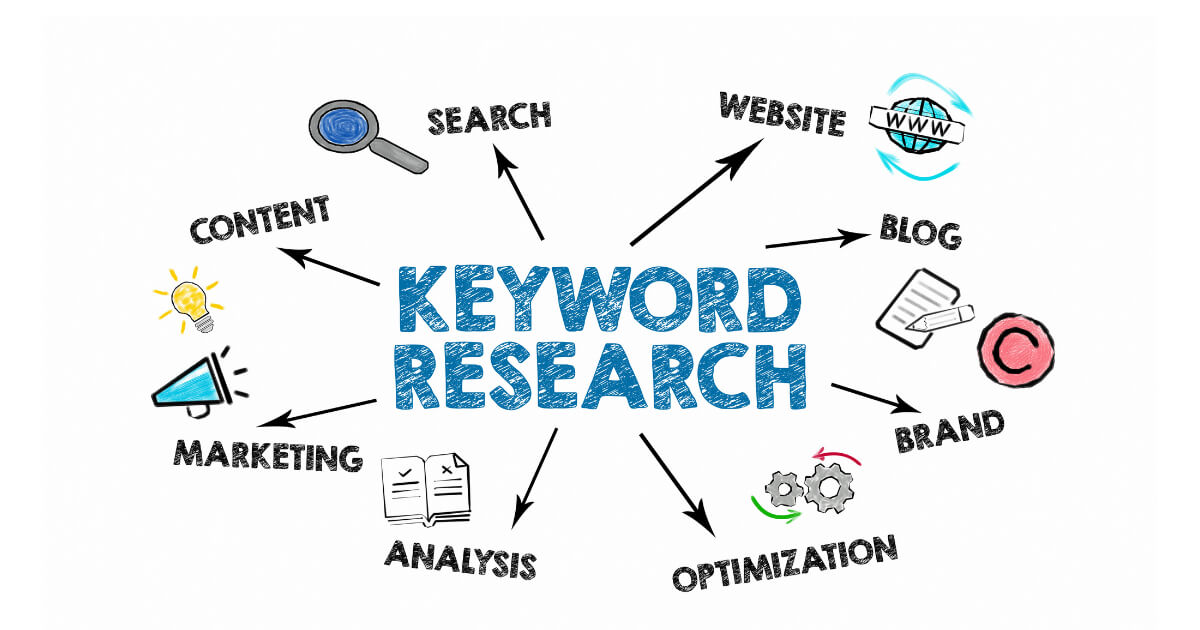Search Engine Optimization (SEO) is essential to any successful business strategy. In today’s digital age, where the internet reigns supreme, businesses that fail to optimize their online presence will inevitably fall behind their competition.
SEO helps businesses rank higher in results pages (SERPs), which translates into increased website traffic and, ultimately, higher revenue. Simply put effective SEO can make or break a business. The benefits of SEO for businesses are vast and varied. It increases your chances of being found online.
This drives more traffic to your site and increases the likelihood that those visitors will convert into paying customers. Effective SEO strategies can also help establish your brand as an industry authority and build customer credibility.
Why Beginners Should Learn about SEO
If you’re new to digital marketing, you might wonder why learning about SEO is essential. After all, so many other aspects of online marketing seem more exciting and glamorous – social media campaigns, email marketing blasts, influencer partnerships…the list goes on.
But here’s the truth: without a solid understanding of SEO basics, none of those other strategies will be as effective as they could be. In fact, without proper optimization for search engines like Google and Bing, all your other efforts may go completely unnoticed by potential customers.
While some aspects of digital marketing may seem flashy or trendy now (hello TikTok!), search engine algorithms change much less frequently than social media trends do! So, investing time and effort into learning about SEO now could pay dividends for years.

The Basics of SEO: What Is It?
SEO refers to optimizing websites. It improves their ranking in search engine results pages. This is done to increase organic traffic to your website. Let’s face it: without traffic, your website is pointless. SEO helps you get that traffic. It’s not a new concept. It has been around for over two decades now. However, it has evolved considerably over the years due to technological changes and user behavior. The end goal is still the same, though.
How Search Engines Work
You need to understand how search engines work. There are three basic steps involved in search engine operation:
1. Crawling – Automated programs called spiders or bots that crawl web pages online.
2. Indexing – information is stored and organized into a database after crawling web pages.
3. Retrieval – when a user enters a query into a search engine, relevant results are retrieved from the index based on keyword relevance and authority. Search engines use algorithms to determine which pages should be ranked higher than others based on these factors.
The Different Types of Search Results
Different types of results can appear on SERPs depending on what kind of query was entered by the user:
1. Organic Results are unpaid listings that appear based on relevance and quality according to algorithmic formulas.
2. Paid Results – Paid-per-click (PPC) ads are sponsored links at the top or bottom of SERPs.
3. Featured Snippets – highlighted answers displayed at the top of SERPs for specific queries.
4. Local Map Pack – displayed for local searches showing local businesses in a specific area. It’s essential to understand the different types of search results to optimize your website for each class, increasing your overall visibility and attracting more organic traffic.

Conducting Keyword Research
Keywords are the foundation of SEO, and conducting thorough keyword research is the first step toward improving your website’s search engine ranking. This process involves identifying relevant keywords that people use.
Why Keyword Research is Important
Keyword research is essential because it understands what the target audience is searching for. Attract qualified traffic to your site by targeting the right keywords, driving conversions, and increasing revenue. Without proper keyword research, you risk creating content that doesn’t resonate with your target audience or optimizing your site for irrelevant terms that won’t drive traffic or revenue.
Tools to Use for Keyword Research
There are many tools available to help you conduct adequate keyword research. My favorites include Google Keyword Planner, SEMrush, Ahrefs, Moz Keyword Explorer, and Ubersuggest. These tools allow you to see relevant keywords and phrases related to your business, their search volume, and their competition level.
How to Choose the Right Keywords
Choosing the right keywords requires an understanding of several factors. First, each term or phrase’s relevance to your business goals and target audience. Second, assess the competition level for each keyword- highly competitive terms may be challenging to rank for initially but can have significant payoffs in the long run if appropriately optimized. Consider user intent- ensure that the chosen keywords align with what users are searching for when looking for businesses like yours.
On-Page Optimization: On-page optimization is a needed component. On-page optimization involves optimizing pages to rank higher. It earns relevant traffic from search engines.
Title Tags & Meta Descriptions: Title tags and meta descriptions are the first they see when they come across a website in search engine results pages (SERPs). They give readers an idea of your page before clicking on it. Crafting compelling titles that accurately represent your content and entice readers to click through to your site is necessary. In addition, meta descriptions summarize the page’s contents and can influence whether someone clicks through. Make sure yours are well written, informative, and include relevant keywords.
Header Tags & Content Optimization: Content is King. Once you’ve enticed someone with a catchy title tag and meta description, you must deliver high-quality content that meets their expectations. Header tags (H1-H6) help structure your text so that it’s easy for both users and search engines to know what the page is. Additionally, optimizing content involves strategically using targeted keywords throughout the text while keeping readability in mind.
Image Optimization
Images can enhance user experience on your site when used correctly, but adding images without optimizing them appropriately can do more harm than good. Image optimization involves compressing ideas to load quickly without sacrificing quality or resolution.
If you want to leverage SEO for business growth, Pay attention to the details of on-page optimization. Crafting compelling title tags and meta descriptions, using header tags strategically while creating high-quality content, and optimizing images for fast loading times, you will be well on your way to SEO success.

Off-page Optimization: Why It’s Necessary
As a beginner in SEO, you might think that on-page optimization is all you need to conquer search engines. But that’s not the case.
Off-page optimization, which refers to all the activities outside your website that influence your rankings, is just as important. Some say it’s even more critical to how authoritative and trustworthy your website is.
One of the most needed aspects of off-page optimization is link building. Links are like votes or endorsements for your website, and they signal to search engines that other sites find your content valuable enough to reference.
Guest blogging is an efficient way to earn high-quality links from reputable sites within your industry or niche. Submit an article for another blog. This is in exchange for a link back to your site.
The key here is creating valuable content that aligns with the blog owner’s audience. Another effective link-building strategy is broken link-building. It involves searching broken links on other websites and suggesting yours as a replacement. It’s a win-win situation because you help web admins fix their sites while also earning quality links for yourself.
The Power of Social Media Marketing
As technology advances, social media has become an essential part of our daily lives – and businesses are taking notice. Social media networks have active users who spend hours scrolling through content daily.
Social media marketing connects brands to their audiences more personally than traditional advertising methods ever could. Businesses can create brand awareness by sharing helpful content about their products or services while engaging with customers in real time through comments and messages.
Social media signals play a role in determining how Google ranks pages too! That means having an active presence across various social platforms could boost SEO indirectly by improving visibility and engagement metrics.
Mastering Off-page Optimization Can Be The Key to SEO Success
While on-page optimization is essential for SEO, ignoring off-page strategies can harm your website’s growth. Link building and social media marketing are just two of many off-page tactics that you should incorporate into your strategy, but they are powerful ones that can make all the difference in your rankings. So the next time you optimize your website, remember that it’s not just about tweaking meta tags and writing compelling content.
It’s also about building relationships with other websites in your industry and establishing a solid brand presence on social media. By mastering both on-page and off-page optimization techniques, you’ll be well on your way to achieving the high search engine rankings that will drive traffic to your site and grow your business!
Technical SEO: Ah, technical SEO – the bane of every novice marketer’s existence. But let me tell you something, dear reader: it’s time to stop running away from technicalities and embrace them with open arms.
Technical SEO is the foundation upon which your website will stand or fall, and it’s not something you can ignore if you want your business to grow. Site speed optimization
A slow website is a death knell in today’s fast-paced online world, and it’s up to you, as a marketer or business owner, to ensure your site is as speedy as possible. There are several ways to optimize your site speed, from compressing images to minifying code and reducing server response times.
But perhaps the most important thing you can do is invest in high-quality web hosting. Don’t skimp on this essential aspect of your website – choose a reputable provider with plenty of bandwidth and fast servers.
Mobile-friendliness
This one should be a no-brainer by now, but I still see far too many websites that haven’t bothered optimizing for mobile devices. Let me be clear: if your website isn’t mobile-friendly, you’re losing out on a massive chunk of potential customers – not to mention hurting your search engine rankings.
Fortunately, optimizing for mobile devices isn’t rocket science. Start by using responsive design techniques that automatically adjust your site’s layout based on screen size – this will ensure that every visitor has a seamless experience regardless of whether they’re using a desktop computer or smartphone.
Site Structure and Navigation
This might seem minor, but it can make all the difference regarding search engine visibility and user experience. Your website should be organized logically and intuitively, making it easy for visitors to find what they’re looking for – information about your products or services, contact information, or anything else.
Use clear and concise navigation menus that are displayed on each page. Avoid clutter and unnecessary elements that might distract or confuse visitors.
And don’t forget about internal linking – strategically linking to other pages within your site can help boost your search engine rankings while providing a better user experience. Technical SEO is not something you should take lightly.
Site speed optimization, mobile-friendliness, and site structure are all components of an effective SEO strategy – without them, you’re essentially shooting yourself in the foot. Take the time to get these basics right from the start, and you’ll set yourself up for long-term success in online marketing.
Measuring Success with Analytics
Setting up Google Analytics
If you’re serious about leveraging SEO for business growth, it’s essential to have analytics set up to track your traffic and conversions. Google Analytics is a tool, and it’s free!
Set up Google Analytics in a few minutes by creating an account, getting a tracking code, and adding it to your website. Once you set up analytics, you’ll see how much traffic you’re getting, where it’s coming from, and how users engage with your site.
Tracking Traffic and Conversions
Tracking traffic is easy, thanks to tools like Google Analytics. Once you’ve set up analytics on your site, you’ll be able to see how many visitors you’re getting each day/week/month. But what about conversions?
Conversions are actions that users take on your site that have value for your business (e.g., filling out a lead form or making a purchase). Tracking conversions can be more complicated than tracking traffic because it requires setting up conversion goals in Google Analytics.
Analyzing Data to Improve Strategy
Once you’ve got data flowing into Google Analytics and tracking traffic and conversions, what do you do with all that data? The key is to analyze the data to improve your SEO strategy regularly. Start by identifying which pages on your site are performing well (i.e., getting lots of traffic) vs. not so well (i.e., not getting much traffic or engagement).
Then look at the keywords people use to find those pages – are they the keywords you optimized for? If not, maybe it’s time to revisit your keyword strategy.
Another vital metric to keep an eye on is the bounce rate. A high bounce rate indicates something is wrong with your site – maybe it’s slow, difficult to navigate, or has poor content.
Don’t forget about mobile users – make sure your site is mobile-friendly, and you’re tracking metrics like mobile bounce rate separately from desktop bounce rate. Setting up analytics and regularly analyzing data is essential for leveraging SEO for business growth.
With tools like Google Analytics, it’s easy to track traffic and conversions and identify areas where you can improve your strategy. Remember to stay on top of trends in SEO analytics so that you can continue to drive growth over time!
Advanced Techniques for Experienced Users
Schema Markup: Taking SEO to the Next Level
If you’re an experienced SEO professional, you may look for ways to take your strategy to the next level. That’s where schema markup comes in. Schema markup is HTML code that helps search engines understand websites clearly.
Provide search engines with more detailed information about your content. Schema markup is used for various purposes, such as marking up product details, event information, and even recipes.
The key is to use it strategically and how it should be categorized. While schema markup may not immediately impact your rankings, it can pay off in the long run by helping you stand out and attract qualified traffic.
Local SEO: Targeting Your Audience Where They Are
Local SEO is essential for running a business or targeting a specific geographic area. This involves optimizing your website. The online presence increases visibility in local search results.
This includes optimizing your Google My Business listing, building local citations and backlinks, and creating location-specific content. One of the most critical factors in local SEO is consistency.
This means ensuring that all your online profiles have consistent information (such as name, address, and phone number), using location-specific keywords throughout your website and content, and targeting local audiences through paid advertising. Using these strategies and other advanced techniques like schema markup and video optimization (discussed below), you can create a robust local SEO strategy that helps you connect with customers where they are.
Video Optimization: Harnessing the Power of Video Content
To take your SEO strategy to the next level, you must start thinking about video. Video is engaging audiences and driving traffic, and it’s becoming increasingly important in the SEO world. Start by creating content optimized for keywords and including relevant metadata (tags and descriptions).
You should also promote your videos through social media, build backlinks from other websites, and even create transcripts or closed captions to make your content more accessible. You can create a robust SEO strategy using these advanced techniques and a solid foundation in SEO basics (such as keyword research and on-page optimization). It helps you stand out in search results, attract qualified traffic, and grow your business over time.
Encouragement to Implement Strategies
It may seem overwhelming at first when starting an SEO campaign. Implementing these strategies is beneficial and necessary for businesses looking to succeed online. Making small changes over time based on testing different methods will improve business visibility.
Future Trends in SEO
The future of SEO is an ever-evolving space; the trends that work today may not work tomorrow. Both beginners and experienced users can stay ahead of the curve and leverage new tactics. Some future trends to watch out for include voice search optimization, artificial intelligence integration, and machine learning techniques. It has natural language processing algorithms used by Google BERT update or Google RankBrain search algorithms.
The rise of mobile-first indexing will also play a critical role in the future of SEO. Businesses can continue to optimize their website and stay relevant in the ever-changing online landscape.










